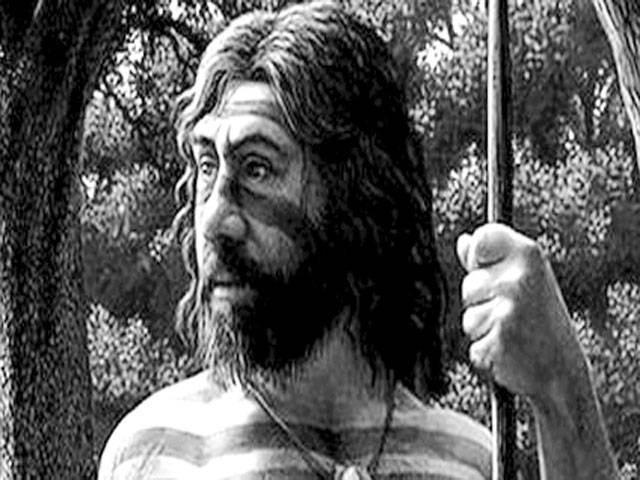WASHINGTON
The oldest known Neanderthal poo, uncovered in Spain, shows that cavemen ate not only meat but vegetables too, according to a study published on Wednesday.
The discovery was made at the archeological site of El Salt, where researchers have found signs that Neanderthals lived some 45,000-60,000 years ago. The study in the journal PLOS ONE is the first to analyze feces in an attempt to show precisely what kinds of foods our long-extinct kin were eating.
Researchers dug into the sediment and ground the samples to a powder for analysis at a sophisticated Massachusetts Institute of Technology (MIT) lab. They discovered biomarkers in the poo that showed coprostanol, a lipid formed when the gut metabolizes cholesterol, particularly from eating animals.
They also found 5B-stigmastanol, a substance that is made when plants are broken down in the digestive process.
That means Neanderthals ate mostly meat, as experts have believed for some time, but that there was also evidence of a considerable amount of plants in their diet, including tubers, berries and nuts. ‘We believe Neanderthals probably ate what was available in different situations, seasons and climates,’ said Ainara Sistiaga, a graduate student at the University of La Laguna who performed the research while studying at MIT.
Previous studies have suggested that Neanderthals probably ate nuts and plants, based on residue found in their teeth. However, these studies were not definite because Neanderthals often used their teeth as tools, and could have been chewing or grasping plant matter but not eating it. It was also possible that the traces of plant microfossils in their teeth came from the stomach contents of the prey they ate. For that reason, the 50,000-year-old poo samples provide a more direct path to finding out what they actually consumed - a varied diet, the researchers said.
Before the Neanderthals went extinct some 35,000 years ago, their capacity for eating multiple food types might have helped them survive, said co-author Roger Summons. ‘It’s important to understand all aspects of why humanity has come to dominate the planet the way it does,’ said Summons, a professor of geobiology in MIT’s Department of Earth, Atmospheric and Planetary Sciences. ‘A lot of that has to do with improved nutrition over time.’
Saturday, November 23, 2024
Neanderthal poo shows cavemen ate veggies

Caption: Neanderthal poo shows cavemen ate veggies
Govt to suspend internet services in major cities ahead of PTI protest
9:31 PM | November 23, 2024
18 killed, 30 injured in tribal clashes in Kurram district
7:41 PM | November 23, 2024
NACTA warns of TTP threat to PTI protest amid heightened security in Islamabad
6:45 PM | November 23, 2024
Attaullah Tarar criticizes PTI, highlights economic progress and security concerns
6:42 PM | November 23, 2024
Over 200 PTI activists arrested ahead of Islamabad protest
6:40 PM | November 23, 2024
-
Digital nomadism redefines work and travel across the globe
-
Digital nomadism redefines work and travel across the globe
-
Lahore tops global pollution rankings as smog worsens, AQI reaches hazardous levels
-
Hunger crisis to increase in South Sudan, warns UN
-
Pakistan’s judiciary champions climate justice at COP29 in Baku
-
Punjab struggles with persistent smog as Met Office forecast rainfall
Paper Justice
November 23, 2024
No Silver Bullet
November 23, 2024
Reckless Accusations
November 23, 2024
UN Crossroads
November 22, 2024
Smog Trade-off
November 22, 2024
The World: No Longer Livable
November 23, 2024
Unveiling Protein Secrets with AI
November 23, 2024
Outdated Policy
November 23, 2024
Brain Drain
November 23, 2024
Proposal to counter increasing cases of harassment
November 22, 2024
ePaper - Nawaiwaqt
Nawaiwaqt Group | Copyright © 2024





